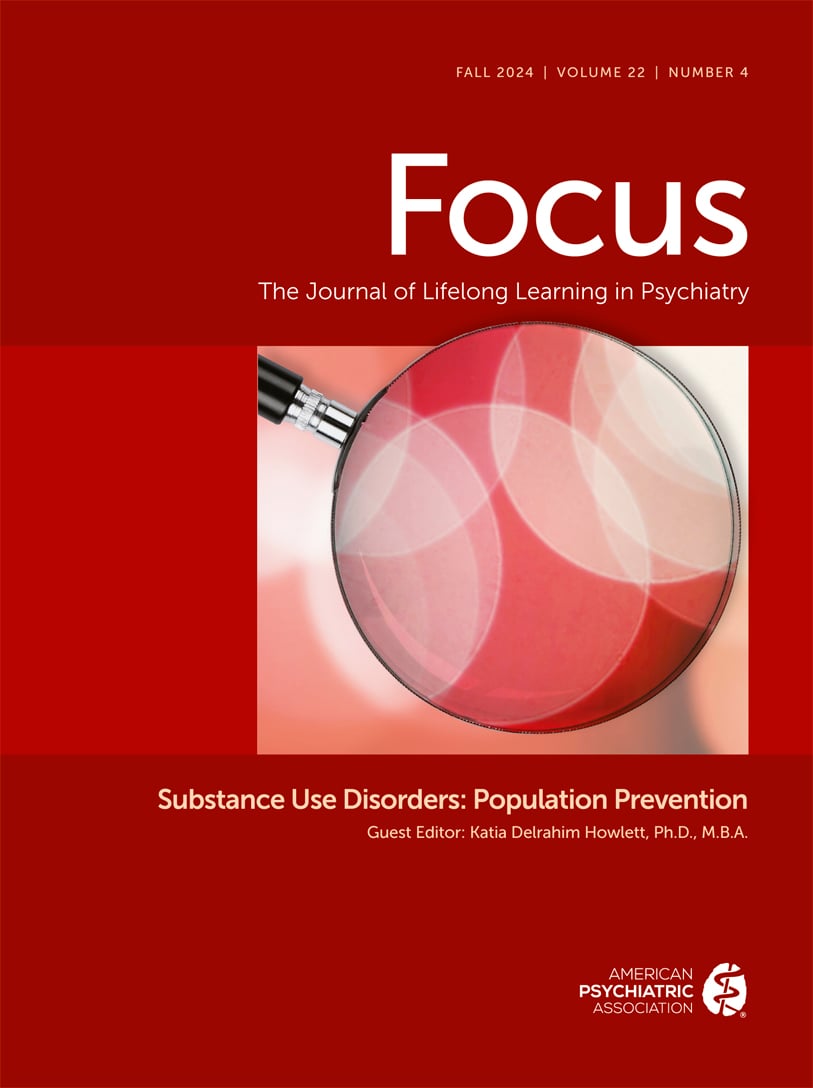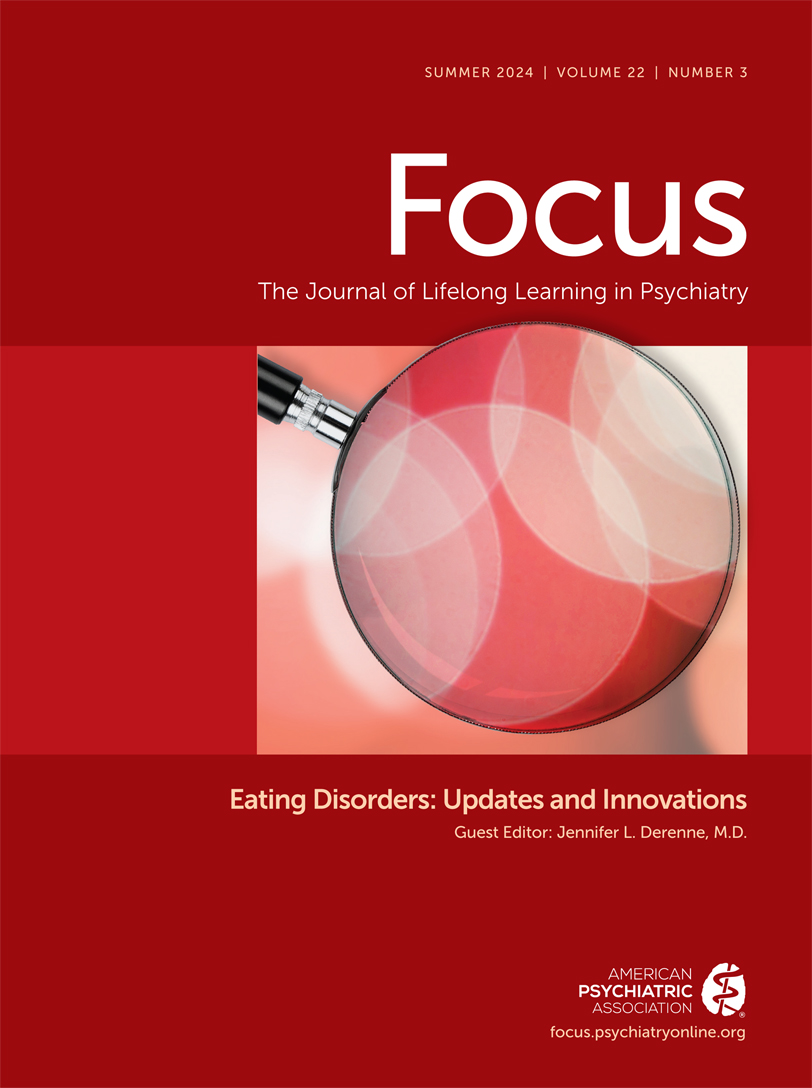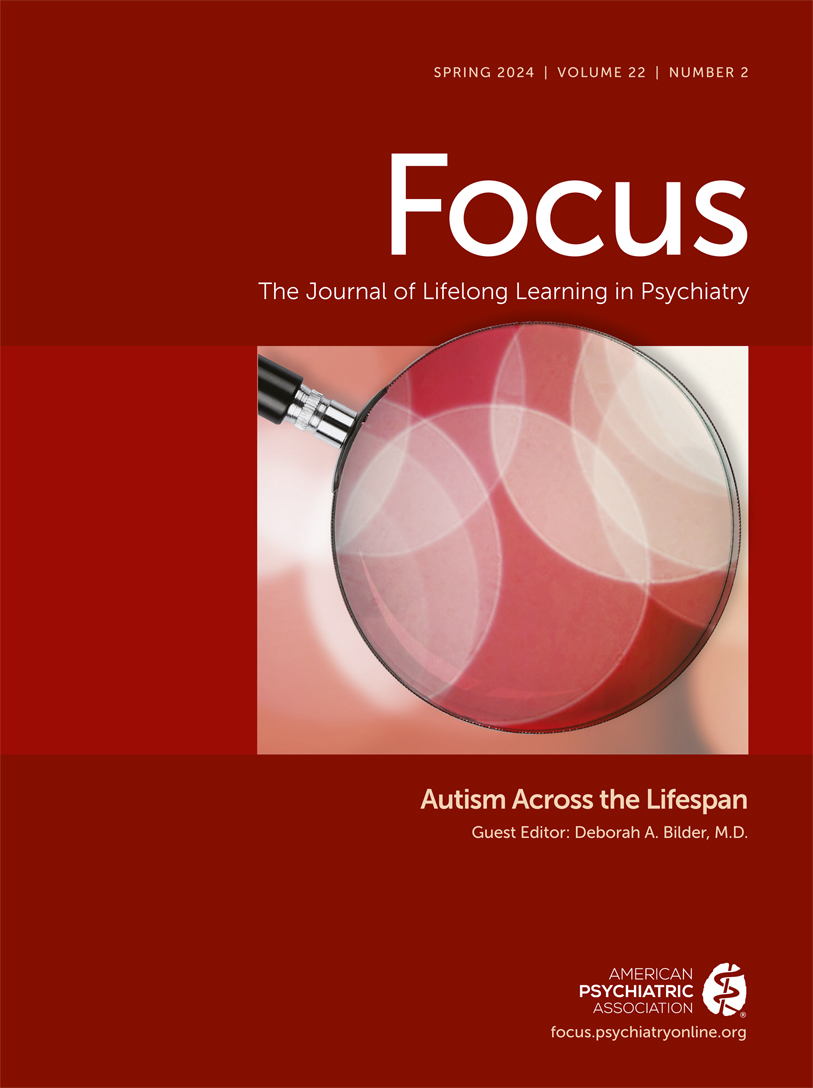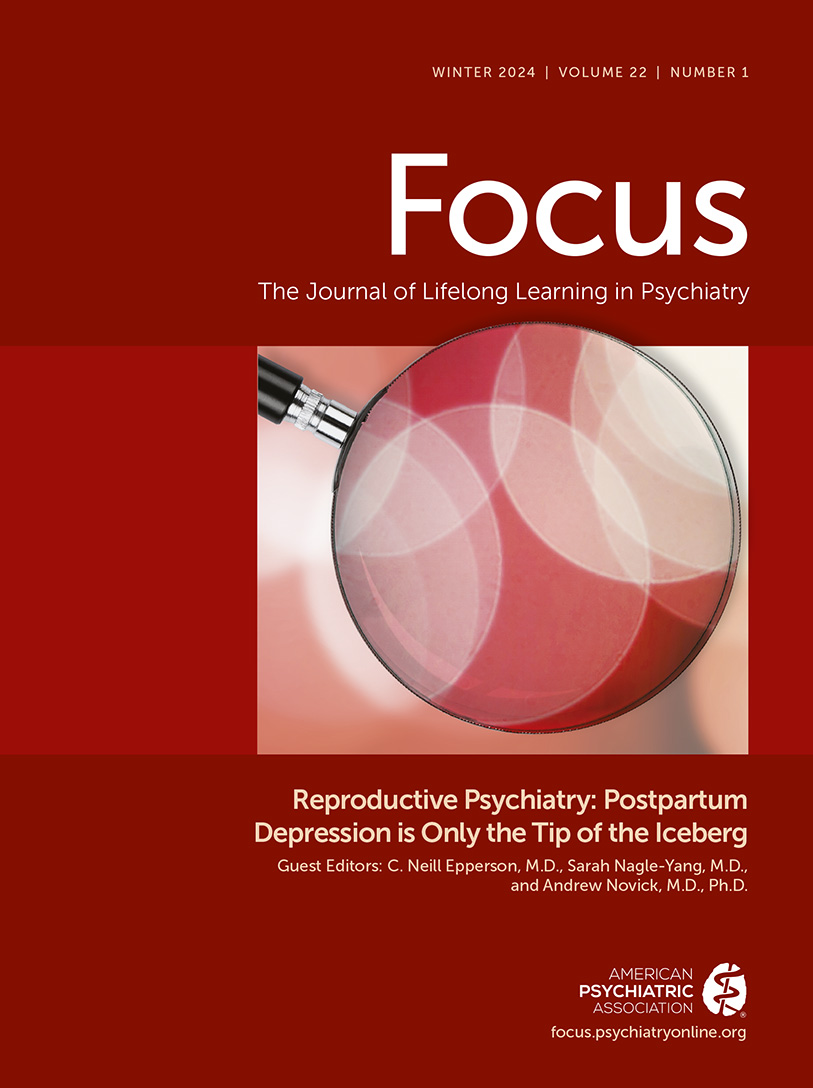Focus
- Volume 10
- Number 2
- April 2012
From The Guest Editor
Clinical Synthesis
Publication date: 01 April 2012
Pages115–123Clinical course in schizophrenia is often characterized by recurrent relapses, which are associated with adverse outcomes. Immune system abnormalities, including inflammation, have been one of the more enduring findings in the field, and several recent ...
https://doi.org/10.1176/appi.focus.10.2.115Publication date: 01 April 2012
Pages124–129Understanding determinants of antipsychotic medication adherence is critical as nonadherence plays a significant role in psychotic relapse and each relapse contributes to accrued social toxicity and disability. “Insight” or lack thereof and a negative ...
https://doi.org/10.1176/appi.focus.10.2.124Publication date: 01 April 2012
Pages130–139Individuals with a diagnosis of mental illness have an increased risk for obesity and its related co-morbidities. Several factors contribute to obesity risk in this population: psychotropic medications, psychiatric symptoms, cognitive impairment, and ...
https://doi.org/10.1176/appi.focus.10.2.130Publication date: 01 April 2012
Pages140–153There are high rates of substance use in patients diagnosed with schizophrenia. The objective of this review is to update clinicians about the epidemiology, consequences, assessment and treatment of comorbid substance use disorders and schizophrenia. ...
https://doi.org/10.1176/appi.focus.10.2.140Publication date: 01 April 2012
Pages157–171The Performance in Practice (PIP) Practice Assessment Tool for the Care of Adults with Schizophrenia was developed to help meet the new ABMS and ABPN MOC requirements and to assist psychiatrists in optimizing care to patients. This PIP tool 1) Provides a ...
https://doi.org/10.1176/appi.focus.10.2.157Publication date: 01 April 2012
Pages172–176This exercise is designed to test your comprehension of material presented in this issue of FOCUS as well as your ability to evaluate, diagnose, and manage clinical problems. Answer the questions below, to the best of your ability, on the information ...
https://doi.org/10.1176/appi.focus.10.2.172Influential Publications
Publication date: 01 April 2012
Pages186–188This section contains a compilation of recent publications that have shaped the thinking in the field as well as classic works that remain important to the subject reviewed in this issue. This bibliography has been compiled by experts in the field and ...
https://doi.org/10.1176/appi.focus.10.2.186Publication date: 01 April 2012
Pages194–216In light of the large number of studies published since the 2004 update of Schizophrenia Patient Outcomes Research Team psychopharmacological treatment recommendations, we conducted an extensive literature review to determine whether the current ...
https://doi.org/10.1176/appi.focus.10.2.194Publication date: 01 April 2012
Pages217–225Many patients with schizophrenia have psychological distress and receive some form of psychotherapy. Several different psychotherapeutic approaches for schizophrenia have been developed and studied. Of these approaches, cognitive behavior therapy (CBT) ...
https://doi.org/10.1176/appi.focus.10.2.217Publication date: 01 April 2012
Pages231–238Objective: This study examined the effect of medication nonadherence on the return of positive symptoms among recent-onset schizophrenia patients. Method: Three sets of operational criteria for medication nonadherence with differing levels of severity ...
https://doi.org/10.1176/appi.focus.10.2.231Publication date: 01 April 2012
Pages240–248Objective: Given financial difficulties precipitated by the flagging national economy, state policy makers are interested in the impact of Medicaid cutbacks on individuals with schizophrenia. Starting in 2003, the Oregon legislature eliminated all ...
https://doi.org/10.1176/appi.focus.10.2.240Past Issues
View Issues Archive
Vol. 22 | No. 4

Vol. 22 | No. 3

Vol. 22 | No. 2
